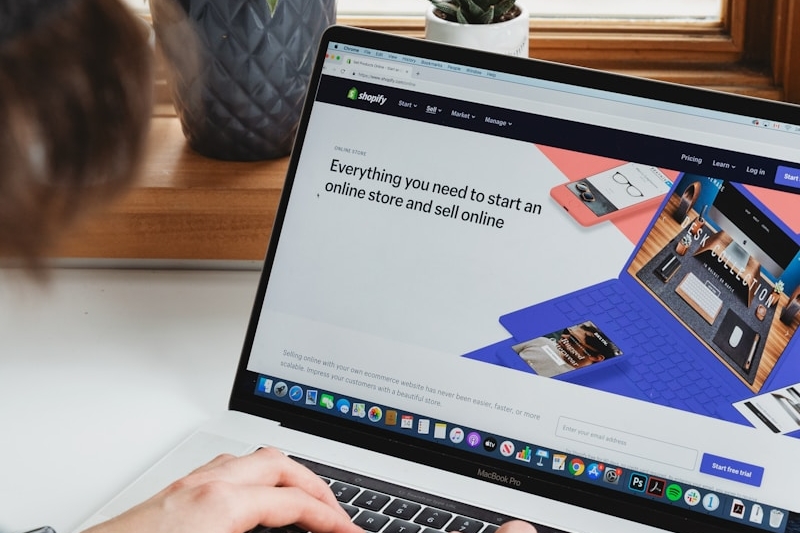This is our complete Terms of Payment as outlined in the formal EM&A Master Service Agreement. We've highlighted the areas within the document that pertain to online purchases and electronically initiated on-demand service requests.
All sales transactions are final. No exceptions.
ERIC MICHAEL & ASSOCIATES REQUESTS PAYMENTS IN FULL, IN ADVANCE OF SERVICE AND/OR AT THE TIME OF ACCEPTANCE AND EXECUTION OF ANY REQUESTS FOR WORK.
BILLING STRUCTURE
Eric Michael & Associates bills all clients at one of three hourly rates, depending on turnaround time demanded, requested, or set by the client.
The Standard billable rate, or hourly rate for projects with delivery requested in ten (<10) business days or more, are quoted and billed at $150 USD per-hour. On-Demand projects, assignments, or tasks requiring delivery in ten (>10) business days or less, are billed at the rate of $225 USD per-hour.
Rushed projects, assignments, or tasks requesting delivery in less than five (>5) business days are serviced at a rate of $300 USD per-hour.
Eric Michael & Associates bills all Administrative, communication, and project management time at the discounted rate of $100 USD per-hour and includes said time and expenditure in flat rated quotes and proposals.
Coaching, training, and “Productivity” Session, where clients are requesting or benefiting from or receiving tactile support, skill share, or trade secrets, are billed at the rate of $225 Per-hour or the self-served pricing available on the website at EricMichaelCreates.com/sessions.
PROCUREMENT FEES
The Client understands and agrees to be charged Procurement Fees whenever required. Eric Michael & Associates charges clients an thirty percent (30%) Procurement Fee for the activation, engagement, or procurement of any and all products, services, and commitments that are met by third-party manufacturers, servicers, and providers such as branded merchandise manufacturers, licensed softwares, tools, and other resources, and sub-contractors when required by the client or not already previously affiliated with EM&A. Procurement Fees show up as individual line items when applied to invoices.
REIMBURSEMENTS
The Client understands and agrees that Eric Michael & Associates must be reimbursed for any and all costs and third-party expenses related to assignments, projects, or maintaining the relationship overall. The Client agrees to repay these debts in a timely manner, as requested via invoice or other electronic settlement and payment gateways. Eric Michael & Associates considers ‘expenses’ to be investments, purchases, licenses, registrations, travel/hospitality costs, and other applicable payments required to begin, develop, maintain, and serve the requests of The Client or any of the collaborative initiatives. Expenses appear itemized on invoices and are due upon receipt.
PAYMENT REQUESTS, INVOICING, & LATE FEES
The Client understands there are multiple ways to satisfy or settle a balance with Eric Michael & Associates, including tools within the Client Dashboard (available online at EricMichaelCreates.com/my-account) or via traditional invoice. Invoices are serviced and sent at the acceptance of work and are due in-full upon receipt. Invoices that carry a past-due balance for more than ten (10) business days are considered ‘overdue’ and are subject to immediate and automatic late fees valued at two percent (2%) of the overdue amount.
PAUSING A PROJECT
To better protect investments and increase return, The Client may choose to place a respective creative project in a ‘Paused’ status for up to three (3) months. Placing a project, individual assignment, or task into a ‘Paused’ status requires written authorization from The Client as well as a monthly retainer of $999 USD. Pausing an assignment respectively reschedules all checkpoints, deadlines, and financial commitments.
During this time, The Client must remain in open communication with the firm to ensure progress is being made and continuity is achieved; if communication dips below anything other than a respectful and/or satisfactory level or lapses for more than thirty (30) calendar days, Eric Michael reserves the right to cancel the project, assignment, or task and terminate the relationship and Agreement.
ERIC MICHAEL & ASSOCIATES RESERVES THE RIGHT TO PAUSE ANY AND ALL OPERATIONS ON CLIENT ACCOUNTS, ASSIGNMENTS, PROJECTS, OR TASKS UNTIL ALL RESPECTIVE BALANCES ARE RECEIVED, CONFIRMED, AND CLEARED
SUBSCRIPTIONS & RECURRING INVOICES
Eric Michael & Associates requests and requires all Clients keep a reliable funding source on file with the studio to ensure the prompt and reliable fulfillment of payment requests. The Client understands that such accounts and records can be self-managed via the Stripe dashboard and agrees to regularly ensure such accounts and records are up to date to the best of their knowledge. The Client may access the Stripe payments dashboard at any time by logging into their EM&A Client Dashboard or by written request.
The Client understands that all subscription services and partnership options requiring automatic recurring payment are accessible, with individual terms and conditions, via EricMichaelCreates.com and agrees to self-manage subscriptions and retainers with accuracy and diligence.
AUTOPAY (AP) TERMS
“AutoPay” is an abbreviated term for ‘automatic payment’ and is used throughout various internal service agreements (terms of purchase, use, subscription, or service) to commit the following terms and conditions. AutoPay is required for all recurring service agreements ordered or entered into via the website (such as product licensing or Managed Digital subscriptions) but is deemed an optional (but requested and highly recommended) benefit and convenience in supporting traditional collaborative working relationship.
(i) The Client understands that AutoPay requires personal (manual) enrollment via any one of the EM&A authorized payment gateways including but not limited to the EM&A Client Dashboard and Stripe Payments dashboard; (ii) The Client understand that enrolling in AutoPay authorizes Eric Michael & Associates to treat that approval as evidence of consent to initiate electronic payment transactions from the designated bank, debit card, or credit card account. Authorization via electronic acceptance, signature, or written consent has the same effect as a handwritten signature on a paper-formatted agreement; (iii) The Client understands that AutoPay enrollment applies to the bank, debit card, or credit card account that is designated only; (iv) The Client understands the need and agree to make manual payments to Eric Michael & Associates until AutoPay enrollment is established and they have written confirmation that they no longer need to make manual payments; (v) The Client authorizes Eric Michael & Associates to automatically charge debit card, credit card, or bank account, as applicable, for any/all recurring and incurred account charges; (vi) The Client understands and agrees that AutoPay payments are withdrawn on or around the fifth (5th) day of each month, or on the overwritten dates specified in another formal agreement, date of activation, or individual invoices which Eric Michael & Associates will provide no less than five (5) days prior to the AutoPay date; (vii) The Client understands and agrees that in order to cancel AutoPay they must telephone or provide a written (emailed) request to Eric Michael & Associates no less than ten (10) business days (two (2) calendar weeks) prior to the requested cancellation date.
PAPERLESS BILLING
(i) The Client understands and agrees that by enrolling in AutoPay also requires Paperless Billing; (ii) The Client understand Eric Michael & Associates will issue and deliver statements of work, estimates, quotes, purchase order requests, and invoices directly via email, and hereby authorizes EM&A to do so; (iii) The Client understands that it is their responsibility to alert Eric Michael & Associates of any/all virtual or email address changes in addition to ensuring proper forwarding is in place from the previous address; (iv) The Client confirms and agrees that Eric Michael & Associates has their most accurate and reliable email address on record to date; (v) The Client agrees to have Eric Michael & Associates notify them via email and/or SMS text message each month, at least five (5) days before their payment is to be debited or charged of the amount of their bill and that their bill is available for round-the-clock online viewing and manual fulfillment; (vi) The Client agrees to promptly and immediately self-service the management of their accounts online via the EM&A Client Dashboard and/or Stripe payments dashboard including updating any and all email address, phone numbers, and billing accounts with Eric Michael & Associates if necessary.
ACCOUNT UPDATES
(i) The Client understand that if there is a need to change their debit card, credit card, or financial institution on record—including billing zipcodes, expiration dates, and security codes—The Client must self-serve such requests via the EM&A Client Dashboard or the Stripe payments dashboard or provide written notice along with the necessary revisions to Eric Michael & Associates; (ii) The Client understands and agrees that Eric Michael & Associates may, by way of our payment processing partners (Stripe), automatically receive updated card information from the financial institution issuing the cards or accounts.
BILLING ERRORS & DISRUPTIONS
(i) The Client understands and agrees that Eric Michael & Associates is not liable for erroneous bill statements, incorrect or accidentally authorized debit/credit charges; (ii) The Client understand that, if a billing error occurs, Eric Michael & Associates is responsible for correcting it after proper investigation, if and when The Client when notified of the error.
RETURNED PAYMENTS
(i) The Client understands that if their payment is rejected, refused, returned, disputed, declined, or reversed by their financial institution or card issuer for any reason, Eric Michael & Associates maintains the right to charge a returned item fee ($75 per-item) and cancel their AutoPay and respective Client account; (ii) The Client understands that their participation and AutoPay enrollment is subject to Eric Michael & Associates’ approval and AutoPay may be paused, suspended, or removed from their account for any reason; (iii) Eric Michael & Associates and participating financial institutions reserve the right to terminate their participation in this payment option at any time, as authorized by applicable law.
AUTOPAY FEES
(i) The Client understands and agrees that AutoPay is a free and complementary feature provided to clients as a convenience by Eric Michael & Associates and that there is no fee for participation in the program; (ii) The Client understands that The Client should verify with their financial institution to determine if additional charges apply with respect to processing payments from their account.
CHANGES & UPDATES
From time to time, Eric Michael & Associates may revise these AutoPay Terms & Conditions. Eric Michael & Associates will provide notice of such revisions by posting revisions in any number of ways, including posts to the EricMichaelCreates.com website, Client Account Management tools, and even the EM&A Newsletter.
Material revisions to the Terms & Conditions shall be effective no sooner than 30 days after posting any/all necessary alerts. If you do not agree to Eric Michael & Associates’ revision(s), you must terminate your AutoPay enrollment immediately in accordance with these Terms and Conditions. By continuing to use AutoPay after revisions are in effect, you accept and agree to all revisions and changes.
These terms are reflected in our Master Service Agreement, agreed to by all studio clients at the time of registration and/or project acceptance.
Please direct all inquiries or clarification requests to: hello@ericmichaelcreates.com











